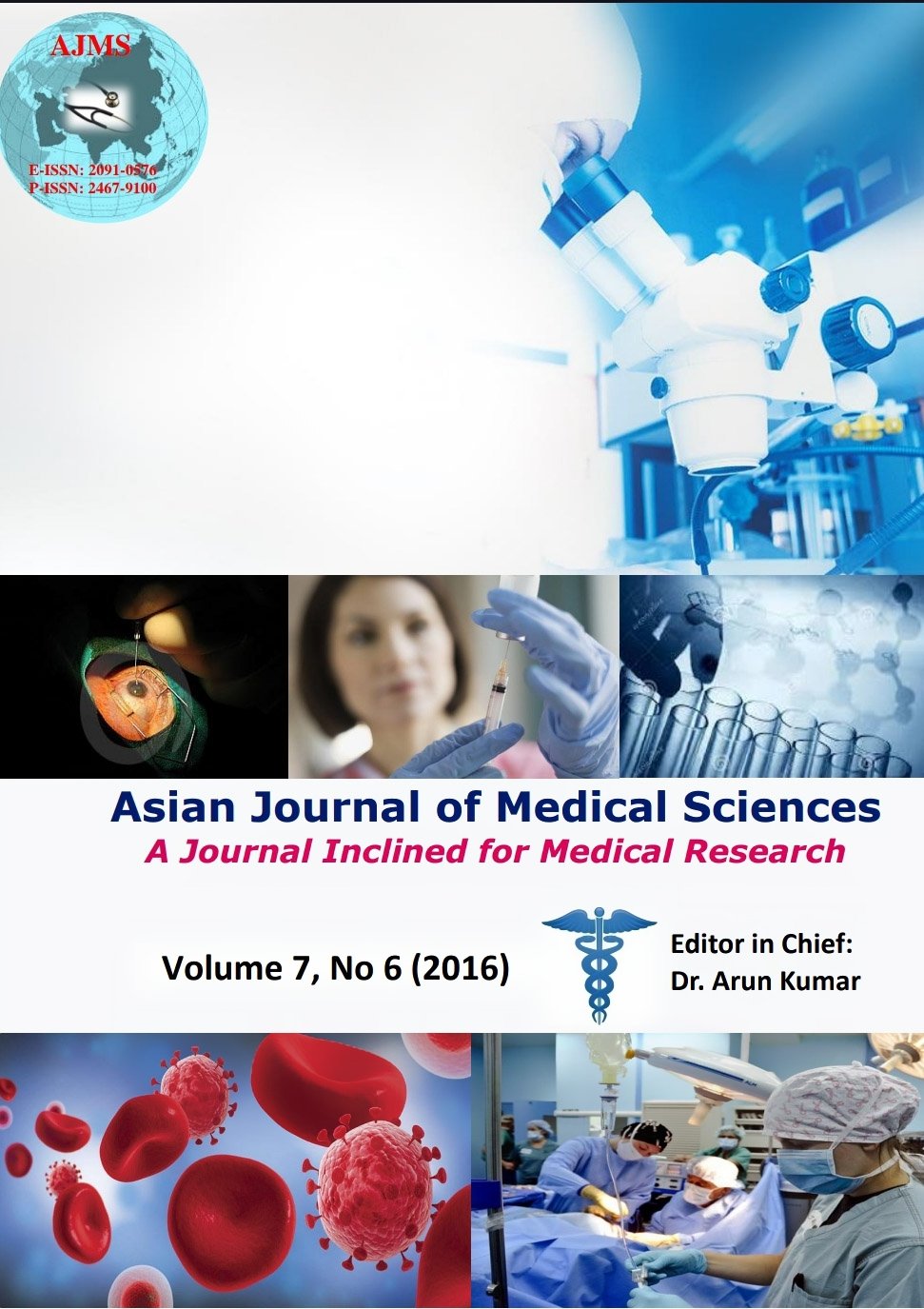Increased H2S synthesizing activity in plasma correlated to fasting blood glucose levels: A study in type 2 diabetes patients
Keywords:
H2S synthesizing activity, FBG, Type 2 DiabetesAbstract
Background: Diabetes mellitus is a major health problem not only in India but worldwide. Our country presently is undergoing an epidemic stage of this non-communicable disease.Though several etiological background of type 2 diabetes has been well explained, yet a number of recent literatures suggested a potential role H2S producing enzymes in the etiology and management of this metabolic disorder.
Aims and Objectives: Our aim was to elucidate the relationship of H2S synthesizing activity in plasma and fasting blood glucose in type 2 diabetic patients.
Materials and Methods: Sixty-two newly diagnosed type 2 diabetes patients and equal number of non-diabetic controls were included in the study. Enzymatic activity of synthesizing H2S in plasma was estimated following methods described earlier with further modification and standardization in our laboratory. All other parameters were estimated by using standardized kits.
Results: FBG, PPBG, HbA1C, Fasting Insulin, H2S synthesizing activity in plasma in patients are significantly higher (p< 0.05) than the corresponding values in healthy controls H2S synthesizing activity in plasma is positively correlated with fasting plasma glucose and the correlations is significant(p=0.05).
Conclusion: Our study though a pilot study with a small sample size, has elucidated that the values of H2S synthesizing activity in plasma are significantly elevated in type 2 diabetic patients and this may help researchers to develop H2S modifying agents and enzyme inhibitors which may open up new horizon in the treatment modalities of type 2 diabetes mellitus.
Asian Journal of Medical Sciences Vol.7(6) 2016 6-10
Downloads
Downloads
Published
How to Cite
Issue
Section
License
Authors who publish with this journal agree to the following terms:
- The journal holds copyright and publishes the work under a Creative Commons CC-BY-NC license that permits use, distribution and reprduction in any medium, provided the original work is properly cited and is not used for commercial purposes. The journal should be recognised as the original publisher of this work.
- Authors are able to enter into separate, additional contractual arrangements for the non-exclusive distribution of the journal's published version of the work (e.g., post it to an institutional repository or publish it in a book), with an acknowledgement of its initial publication in this journal.
- Authors are permitted and encouraged to post their work online (e.g., in institutional repositories or on their website) prior to and during the submission process, as it can lead to productive exchanges, as well as earlier and greater citation of published work (See The Effect of Open Access).




